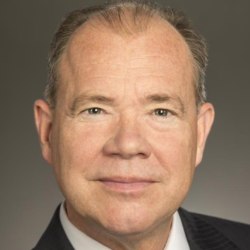State Audit Exposes High Speed Rail’s Epic Waste of Time and Money
Although the midterm election was held on November 6th, the news media was absorbed for several weeks with undecided close races and the strength of the “blue wave,” especially here in California. Perhaps that is why a report from the Auditor of the State of California on the High Speed Rail Project issued the following week did not receive as much attention as it would otherwise warrant.
To understand just how damning the HSR audit was, just consider the subtitle: “Flawed Decision Making and Poor Contract Management Have Contributed to Billions in Cost Overruns and Delays in the System’s Construction.” But like many government documents, the audit is couched in bureaucratic language that ordinary citizens may not understand. For that reason, below are the summary points as provided by the state auditor with accompanying translations.
Auditor: “Although the Authority has secured and identified funding of over $28 billion that it expects will be sufficient to complete initial segments, that funding will not be enough to connect those segments, or finish the rest of the system—estimated to cost over $77 billion.”
Translation: The Authority has succeeded in talking both the federal government and the state of California into providing billions of dollars on a failed project and yet still has no idea where the rest of the money will come from.
Auditor: “It has incrementally modified its plans for a fully dedicated high-speed rail system since 2012 and now intends to share—blend—existing transit infrastructure wherever feasible. Although blending is less costly, it subjects high-speed trains to lower speed limits and may require sharing time on the tracks with other rail operators.”
Translation: All those promises made to voters about getting from San Francisco to Los Angeles in less than three hours were never serious.
Auditor: “The fact that has now exhausted all feasible options to use existing infrastructure raises concerns about its ability to mitigate future cost increases.”
Translation: The Authority has followed Willie Brown’s advice. The former Assembly Speaker, in a moment of candor, once told the San Francisco Chronicle, “In the world of civic projects, the first budget is really just a down payment. If people knew the real cost from the start, nothing would ever be approved. The idea is to get going. Start digging a hole and make it so big, there’s no alternative to coming up with the money to fill it in.”
Auditor: “The risk of additional cost increases is high. Costs to date have been significantly greater than originally projected because the Authority moved forward before it completed many critical tasks such as purchasing land, planning how to relocate utility systems, or obtaining agreements with external stakeholders.”
Translation: The Authority’s modus operandi can be distilled into three words: “Fire, ready, aim.”
Auditor: “This risk contributed to $600 million in changes to construction contracts.”
Translation: $600 million (over half a billion dollars) in unnecessary expenditures to date is just a preview of the waste we’ll see in future years.
Auditor: “If the Authority does not complete construction by the federal government’s December 2022 deadline, it may need to repay $3.5 billion.”
Translation: The Authority is going to have to spend tens of millions of dollars on Washington lobbyists to make sure this doesn’t happen.
Auditor: “ needs to improve its contract management to control soaring costs—it currently has 56 contract managers throughout its organization, but these individuals generally do not serve in contract management roles full time. Moreover, it has placed portions of its oversight of large contracts into the hands of outside consultants.”
Translation: It’s hard to determine which is worse; the gross mismanagement by managers within the Authority or the fact that it is being ripped off by outside consultants.
For years, transportation experts, taxpayer advocates and fiscal conservatives have watched the horror show known as California’s high-speed rail project unfolding before our very eyes.
While we would hope that a new crop of legislative leaders would take a keen interest in protecting taxpayers as well as ensuring that valuable transportation dollars are spent wisely, the reality is that there are too many vested interests reaping billions of dollars from the project to allow serious oversight.
This virtually guarantees that California will continue to throw good money after bad for years to come.
Jon Coupal is president of the Howard Jarvis Taxpayers Association.
